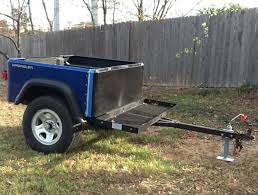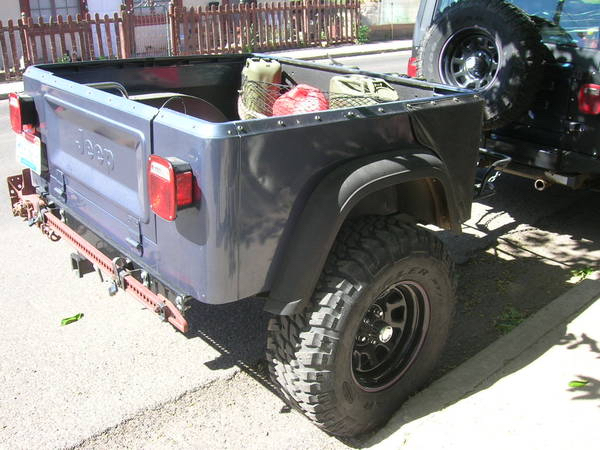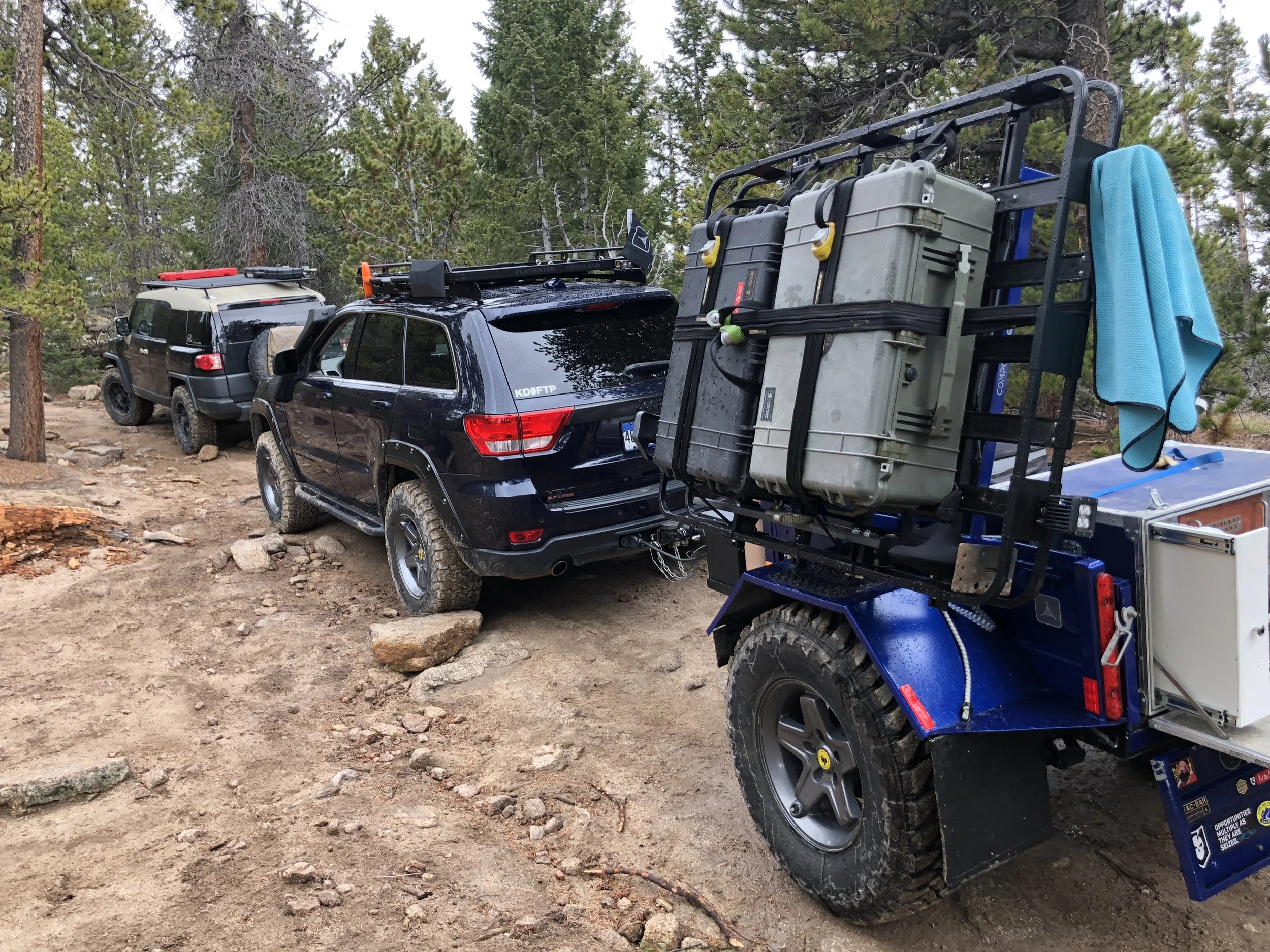Before we get into specifics, exactly why would an adventurer want to invest in what amounts to another vehicle just to go camping? An overland trailer offers versatility and capacity not possible with just an overland vehicle. A trailer takes weight off of the tow vehicle and spreads it over at least one more axle. Having an equipped adventure trailer ready to hook up and go at a moment’s notice opens up opportunities for travel that would be otherwise more difficult to plan and execute. An equipped trailer can also function as base camp and be disconnected for localized adventure and explorations. A utility overland trailer can also have multiple uses for cargo transport when not in adventure configuration.
So just how is an "overland trailer" different from any other trailer? On the most basic terms, it's really no different since it's primary purpose is to increase the cargo carrying capability of a single vehicle system by spreading the load over multiple axles. However, since an expedition vehicle needs a little distinctive definition from other 4x4s, so does the overland, or expedition trailer.
An overland trailer is a small cargo trailer designed and prepared for self-reliant travel over long distances, through unpredictable weather and over variable terrain. As such, this type of trailer has more extensive design requirements to be successful than your standard cargo trailer. As with overlanding, "off road trailers" of all shapes and kinds have become more popular than ever. The vast majority are home-built with a wide range of styles and build quality. For clarity, below are a few descriptions to help with clarity when discussing overland trailers. But first, let's establish what will qualifies at Flatwater Overland as a true "overland trailer".
To qualify as an "overland trailer", the unit must:
Have the capability to continuously traverse the same technical terrain as the tow vehicle and be intended to be utilized "off road".
Meet all applicable DOT safety regulations for use on public roadways.
Have multiple recovery points.
Be stable at highway speeds for long distance travel both in suspension/load dynamics and aerodynamics.
Have the capability to restrain and contain its cargo over varied terrains and speeds.
Have the capability to continue safe operation in the event of a trail tip-over or rollover.
There are a large number of camping and cargo trailers in existence that are very useful and well built, but aren't necessarily designed and built for true overland use. Some indicators of something claimed to be an "expo trailer" but really isn't may include-
Tires on trailer are smaller than on tow rig- particularly a wheel combination under 15"
low chassis ground clearance
Track width of trailer is less/more than 10" of tow rig
Trailer pivot radius is more than 12" longer than tow rig wheelbase. (there are exceptions, but the trailer will constantly cut corners while maneuvering on the trail which can lead to rollovers and trailer damage)
Trailer is hitched with a "ball" or straight pin. Any trailer that is used off of improved roadways will almost certainly require a fully articulating hitch of some type
Trailer appears to be a hodgepodge of parts, top heavy, or has a tall cross-section
Absence of fenders
Box or body is constructed of wood (some fiberglass trailers also fit here if not reinforced or protected by some kind of external frame or rub rails and would likely not survive a trail tip-over or rollover)
Lack of brakes (technically, there are many small, lightweight off-road trailers that would not need brakes under normal circumstances; however, overland and off-road use is not "normal". Brakes will make the difference in controlling or sliding a trailer off of trail obstacles, control down loose slopes, and assisting the tow vehicle at higher speeds. Most modified 4x4s do not have sufficiently modified brakes for larger and heavier tires, let alone trailer towing. Compound this situation with a the 4x4 loaded over it's factory GVW with gear and modifications.)
No parking stabilizers when fitted with a rooftop tent
Let's Examine Some Overland Trailer Types
Manufactured Expedition Cargo Trailers:
These trailers are generally all specialty or custom manufactured specifically for off-road or military use. This is the best option for the overlander with limited fabrication experience that needs a reliable overland trailer. These are all generally built and outfitted to modern manufacturing and DOT standards with overland or expedition use in mind. They can often be customized for the customer's specific uses and even fitted at the factory with rooftop tents and every conceivable type of expedition gear. Since these are "turnkey" vehicles and typically well built, the cost can be prohibitively high for someone new to overland travel. Many of these specialized trailers can cost as much as the overland vehicle itself when fully kitted out. The obvious benefit if you can afford this option is that it will be built properly to begin with and likely outlast your tow vehicle. The ugly truth is that if you were to custom build an identical trailer yourself, the cost would be higher due to trial and error, tooling, materials, and the design work involved. The initial cost is usually what drives adventurers needing a trailer into the homebuilt arena, but it should be done with humility and knowledge.
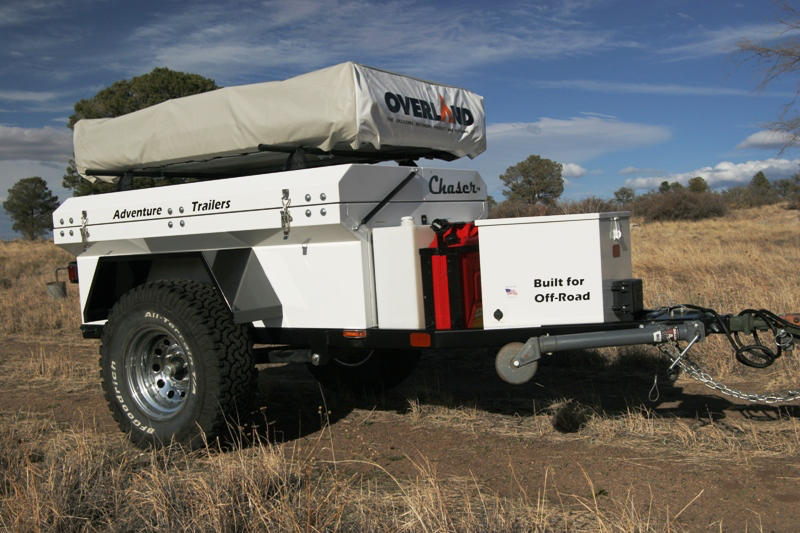
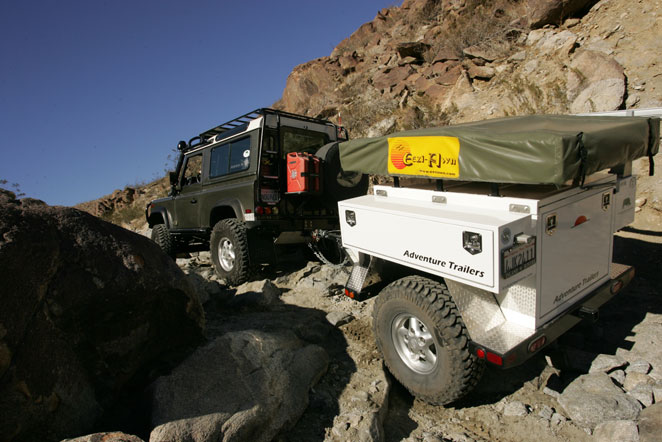
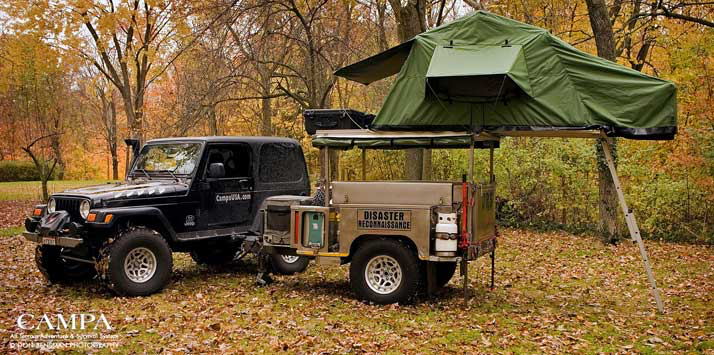
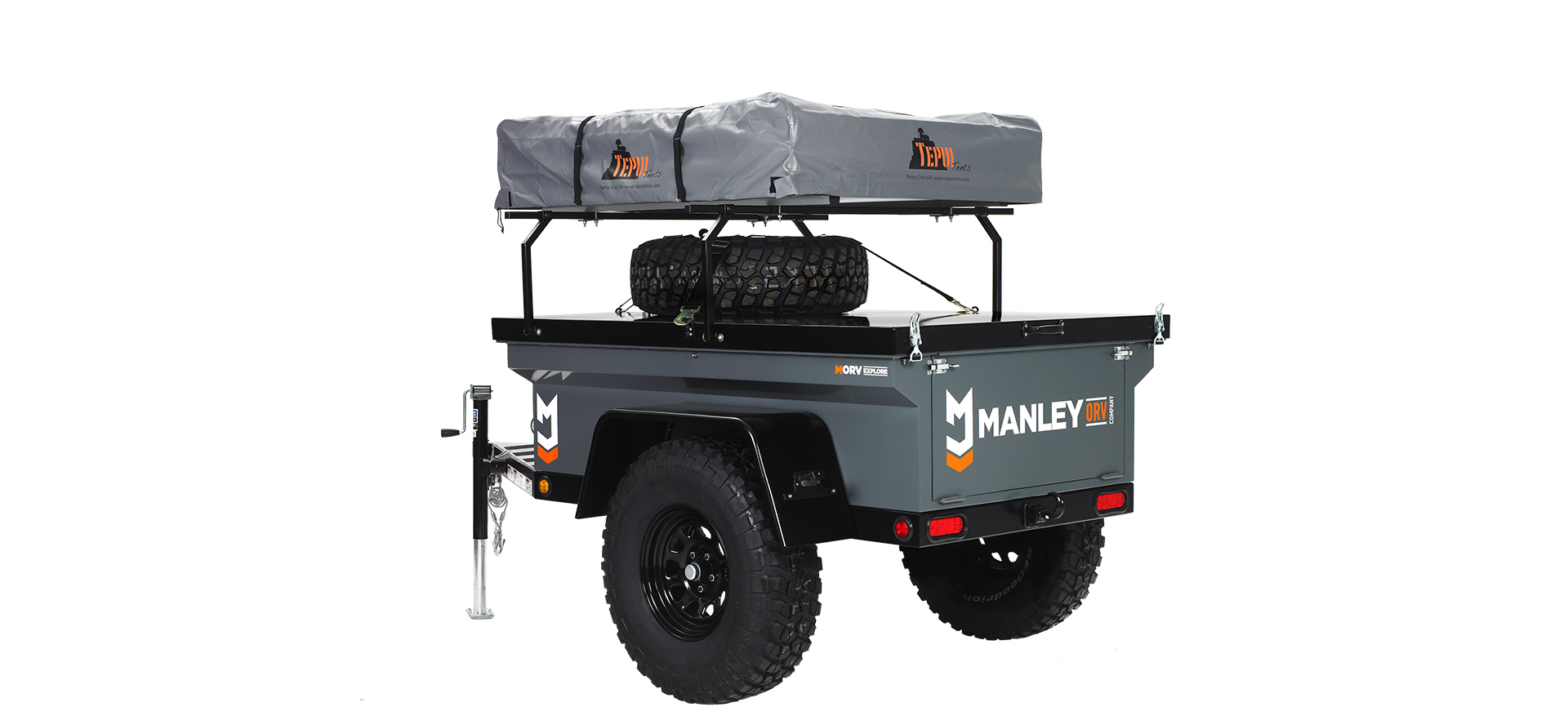
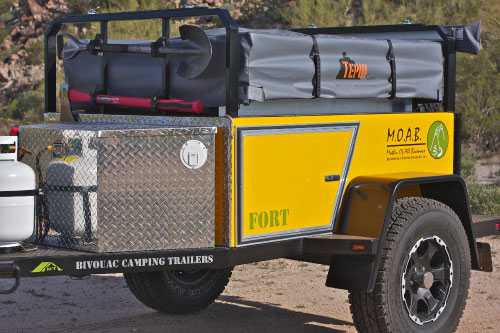
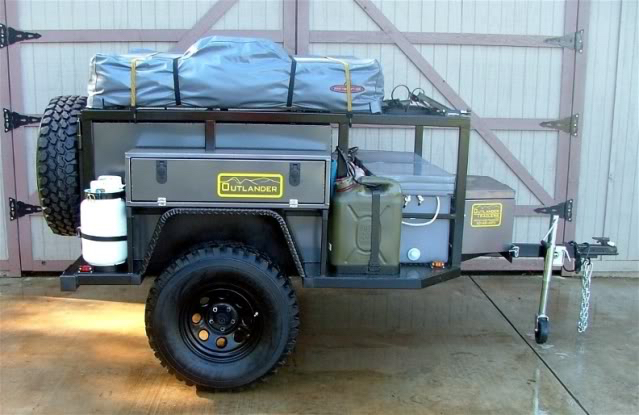
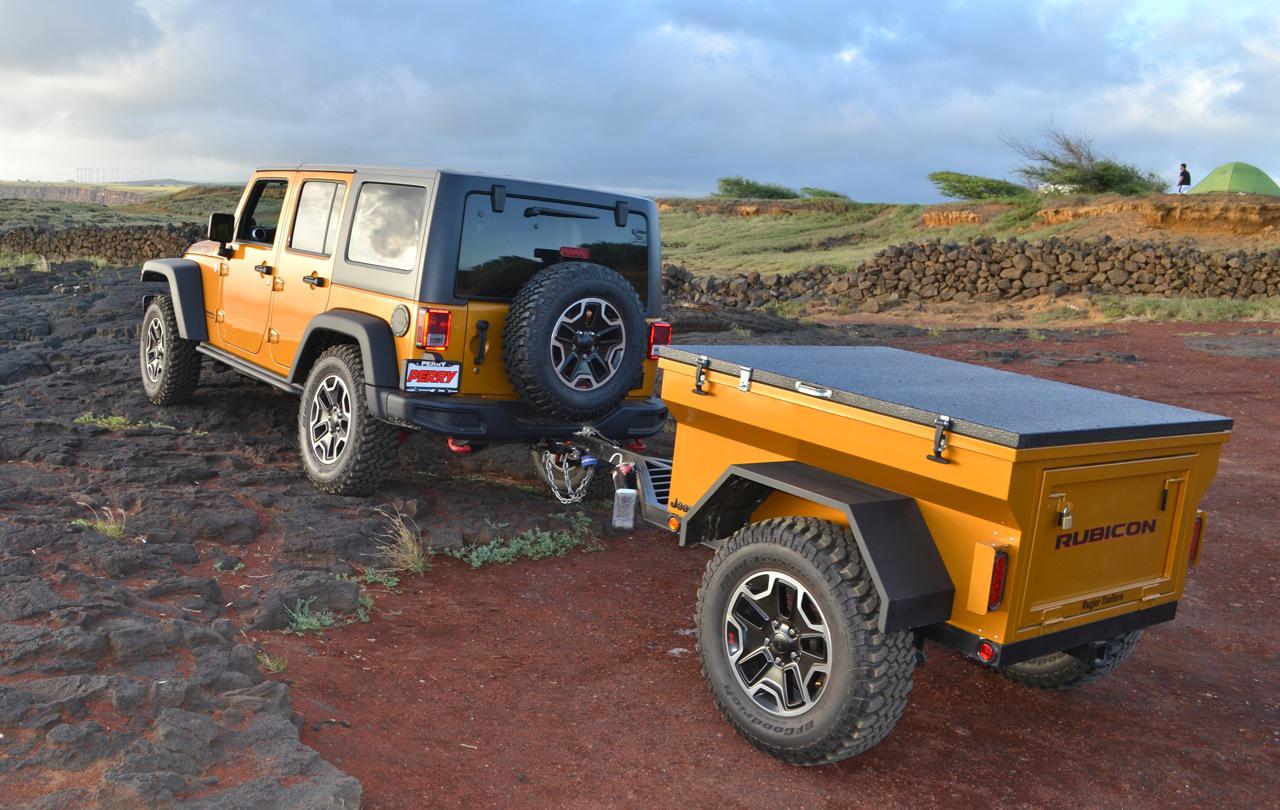
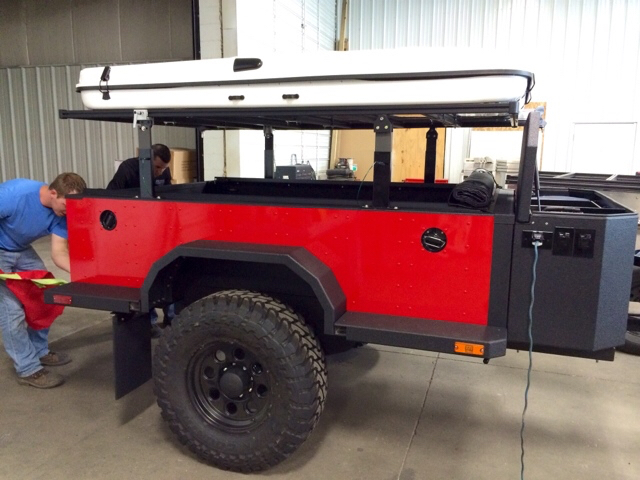
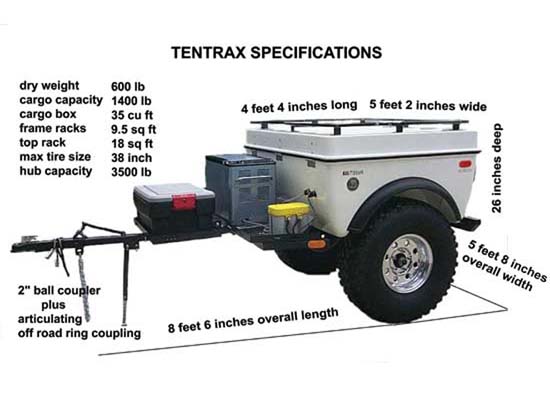

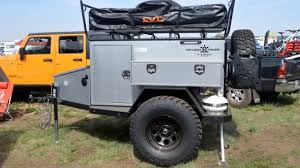
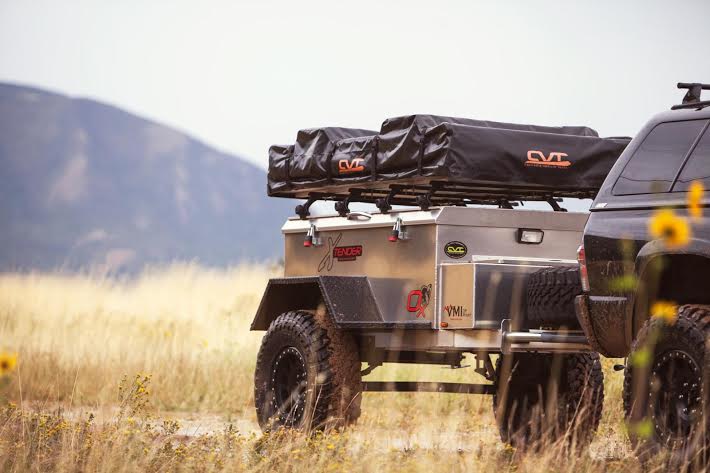
Off-Road Campers:
This a niche of overland trailers generally rare in North America. These campers (or Caravans as they are called overseas) are compact RV style trailers that typically have some kind of "pop-up" tent capability or may even be completely "hard side" like off road teardrop campers. Unfortunately, there are plenty of RV companies selling traditional pop-ups and campers that claim to be for "off-road", which in reality are only meant to travel occasionally down dirt forest roads to a campsite. Buyer beware in this area if you feel you need a true overland capable camper. These are the most difficult of the overland trailers to strike a balance between weight, stability, and durability. They are typically quite expensive as it is difficult to build a lightweight house on wheels that can be bounced over trails for days on end without falling apart.
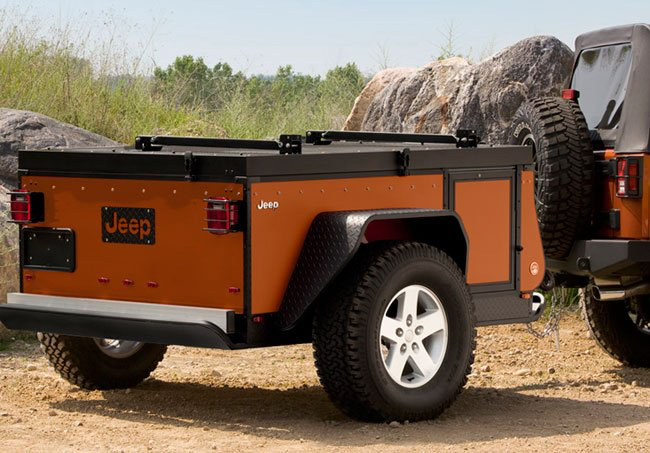
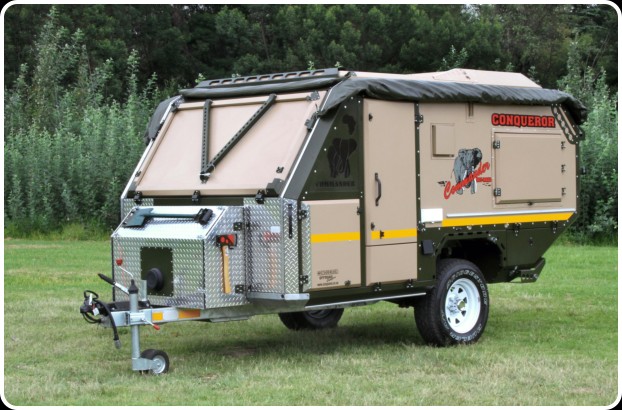
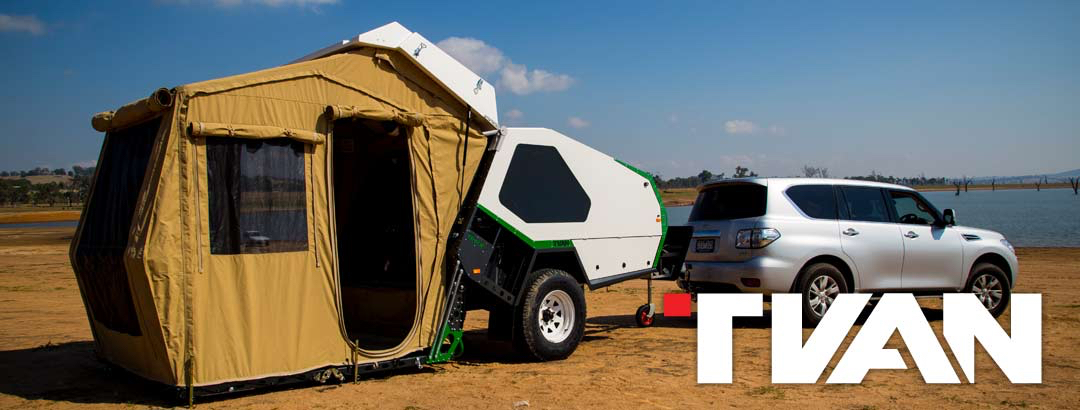
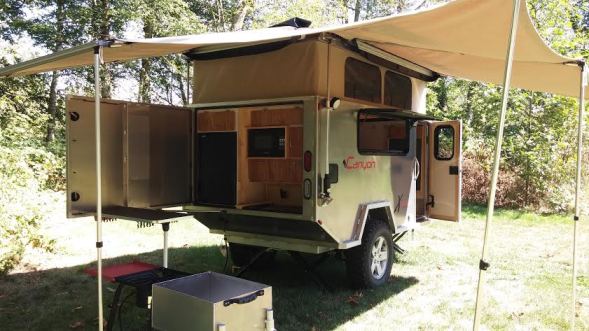
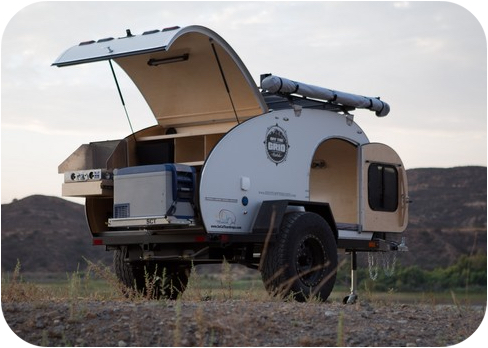
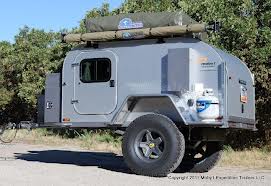
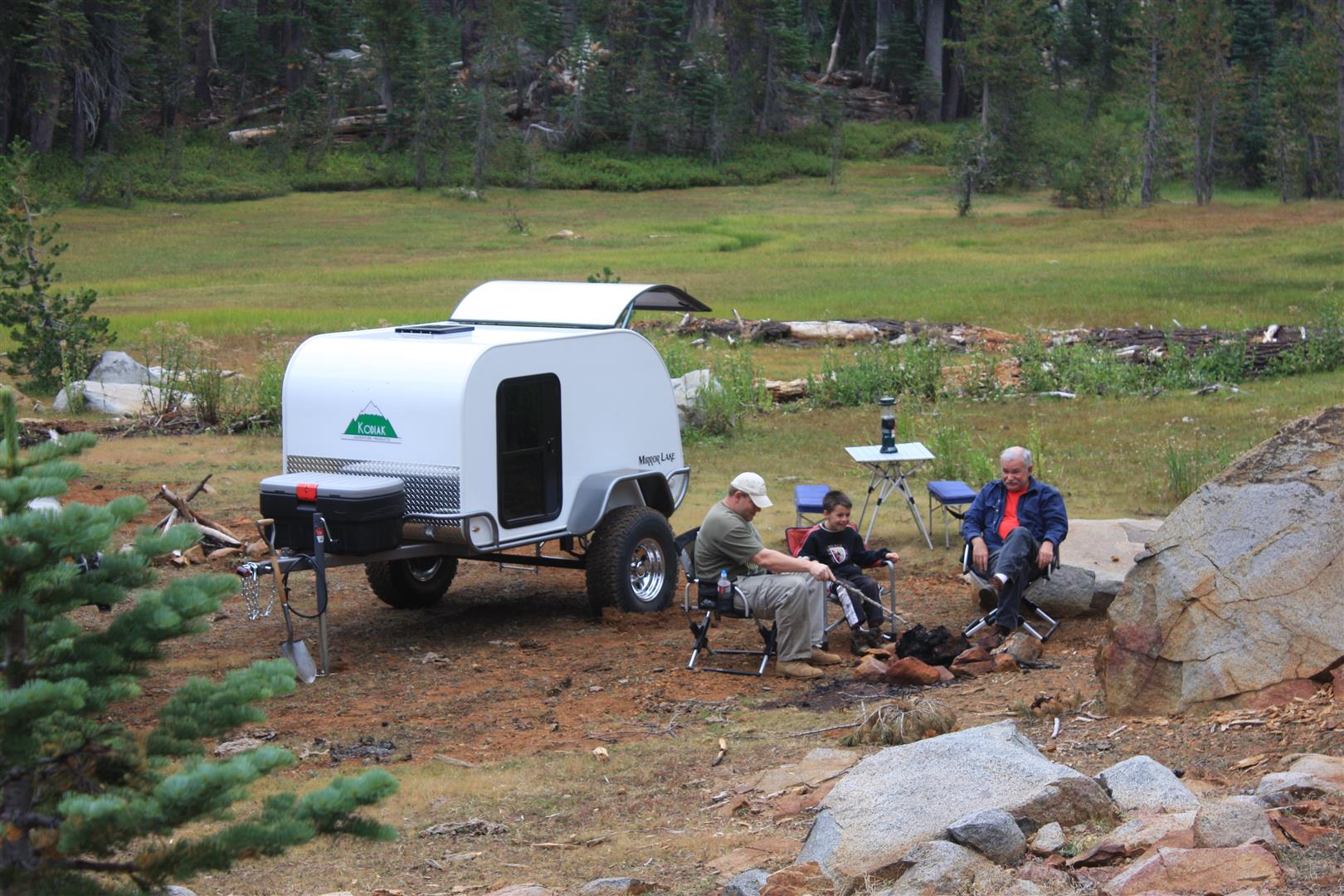
Homebuilt Trailers:
The internet is full of home made "expo trailers" (including this website). A large chunk of these actually are not overland capable due to poor weight distribution, low quality materials and construction, inadequate suspension, lack of design expertise, and a misunderstanding of what an overland trailer actually is. However, there are also many people who know what they need, do the necessary research, educate themselves, and have the fabrication skills to make their vision happen. I unfortunately cringe every time I see someone post in a forum something like "I found this on Craigslist for $250, would it be a good expo trailer?". Chances are, no. Although starting with a manufactured trailer as a foundation of some kind is an excellent idea for a home builder, you still have to know what you're doing to create a functional and safe overland trailer. The benefit to building your own overland trailer is that if you do it right, you will end up with exactly what you want and need. However, it may not be as cheap a project as you may assume if the desired end state is to be legal, useful, and attractive. Do some soul searching if you see an AT Overland trailer or Ruger trailer and say to yourself "That's stupid! I can build that same thing for $2000!" The likely truth is that you can't reproduce that trailer for a third of what the manufacturer did. The positive to this though, if you are just getting started in overland adventure travel, a secondhand inexpensive cargo-only trailer with a few easy modifications may be just the ticket until you figure out exactly what you need in a trailer. Maybe you don't even need a true overland trailer.





